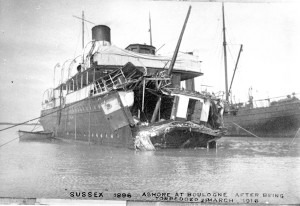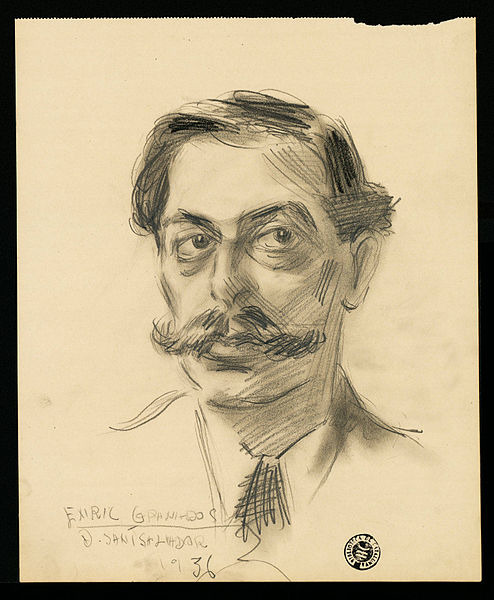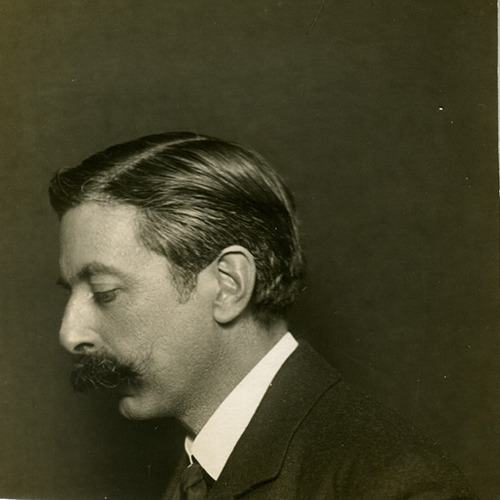
Enrique Granados and Clotilde Godó Pelegrí
On 28 July 1894, Amparo gave birth to the first of their six children. With his family rapidly expanding, Enrique was desperately trying to secure a steady source of income. Various applications to conservatories in Barcelona and Madrid came to naught, and these rejections plunged Enrique into a severe crisis of confidence. “I die from pain when I reflect on the fact that up until now I have accomplished nothing,” he writes to his wife. “What is more, you torment me cruelly when you talk about what will become of us if I do not get this position, and that consumes my soul. My ambition is to become to Spain what Saint-Saëns and Brahms are to their countries.” Although money would continue to be a problem for the rest of his life, he nevertheless persisted with his musical dreams. “My only ambition is that my work will endure, though at the expense of my suffering. For it causes me great sadness to live at the mercy of the pettiness and envy of losers.”
Unable to secure a teaching position, Enrique was forced into a decade of intense concertizing. I say forced, because he suffered from extreme stage fright! Nervousness to the point of paralysis and the feeling of being physically sick flared up before every concert. As his biographer reports, “Almost with tears in his eyes, he appealed to all those present to allow him to go home because he was feeling ill, terribly ill. His friends, who were familiar with the artist’s nerve, did not relent in the slightest. To the contrary, they pushed him forcibly, virtually throwing him on stage. After a few measures he had recovered completely, now disposed to astonish the public with his exquisite art and famous touch.” His reputation as a performer firmly established, Enrique also scored his first successes as a composer. Almost inevitably, however, fame and fortune also brought distractions of a romantic nature!

SS Sussez Torpedo Incident
In 1901, Enrique founded the Granados Academy, a school for teaching the art of piano playing. Granados had an almost habitual weakness for young women, and being surrounded by admiring female students proofed to be a serious challenge for his marriage. Clotilde Godó Pelegrí, daughter of a wealthy industrialist, became a student at his newly created academy at age 17. Vivacious and attractive, Clotilde’s presence in his life became an important factor, artistically and personally. Over a number of years, Enrique’s relationship with Clotilde progressed from student to confidant to collaborator and eventually romantic partner. Although Enrique had previously engaged in a number of romantic entanglements with students and various admirers, it was this long-time affair with Clotilde that created serious domestic tension. In fact, it has been suggested that Clotilde was indirectly responsible for the untimely and tragic death of Enrique and Amparo Granados.
In 1916, Enrique and Amparo spent a couple months in New York. This visit to the United States included the world premier of his opera Goyescas, and solo and chamber recitals with cellist Pau Casals. Professional success none withstanding, Enrique was apparently obsessed with returning to Clotilde’s side in Barcelona. As such he booked a passage through the war zone to England, rather than waiting another month for a Spanish vessel to take him home directly. On route across the English Channel, a German U-boat torpedoed the SS Sussex. When Enrique saw Amparo fall into the water some distance away, he jumped out of his lifeboat in an effort to save her. Sadly, both husband and wife perished and their bodies were never recovered.
Enrique Granados: Danzas españolas



